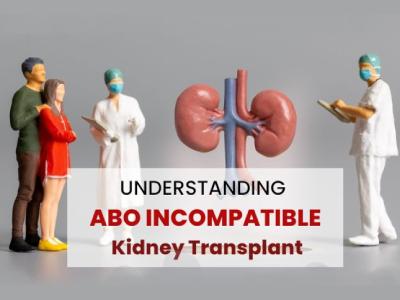ABO Incompatible Transplants
- Home
- / Dr. Virendra Chauhan

ABO Incompatible Transplants
Reasons for ABO Incompatibility
Limited Donor Pool: ABO incompatibility can expand the pool of potential donors, especially in situations where compatible donors are scarce.
Emergency Situations: In urgent cases where waiting for a compatible donor may not be feasible due to the recipient's critical condition, ABO incompatible transplants offer a viable option..
Alternative for Sensitized Patients: Patients who have developed antibodies against potential donors (due to previous transplants, blood transfusions, or pregnancies) may benefit from ABO incompatible transplants.
Procedure
Immunosuppression: Recipients receive immunosuppressive medications to suppress their immune system's response and reduce the likelihood of rejection.
Monitoring: Regular monitoring of antibody levels and kidney function post-transplant is essential to detect and manage rejection early.
ABO incompatible transplants represent an important option for expanding the donor pool and providing life-saving treatments to patients who might not otherwise have a compatible donor. While they involve additional challenges and risks, advances in medical techniques and careful patient management have made these transplants increasingly feasible and successful.